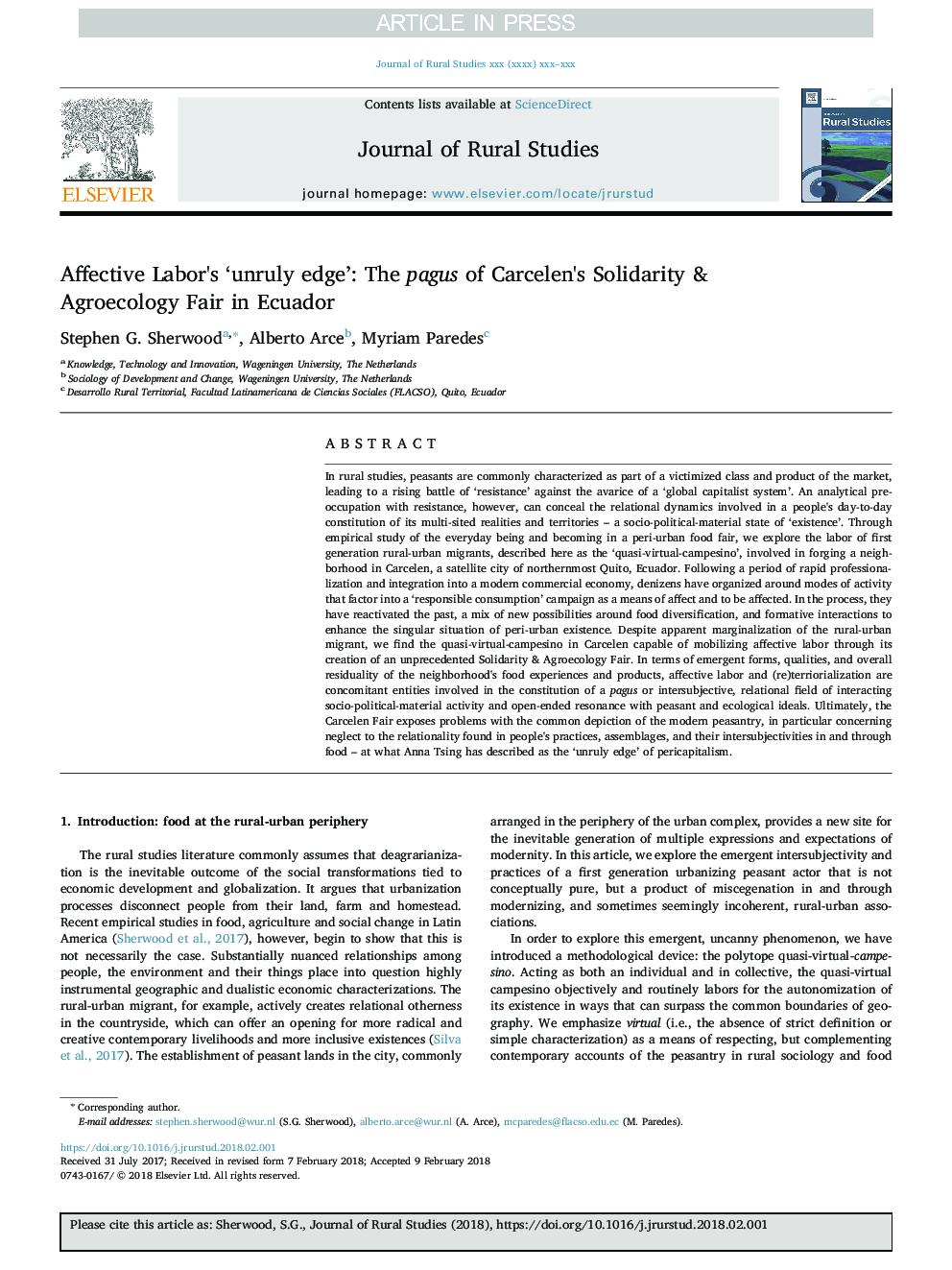| Article ID | Journal | Published Year | Pages | File Type |
|---|---|---|---|---|
| 6545259 | Journal of Rural Studies | 2018 | 12 Pages |
Abstract
In rural studies, peasants are commonly characterized as part of a victimized class and product of the market, leading to a rising battle of 'resistance' against the avarice of a 'global capitalist system'. An analytical preoccupation with resistance, however, can conceal the relational dynamics involved in a people's day-to-day constitution of its multi-sited realities and territories -- a socio-political-material state of 'existence'. Through empirical study of the everyday being and becoming in a peri-urban food fair, we explore the labor of first generation rural-urban migrants, described here as the 'quasi-virtual-campesino', involved in forging a neighborhood in Carcelen, a satellite city of northernmost Quito, Ecuador. Following a period of rapid professionalization and integration into a modern commercial economy, denizens have organized around modes of activity that factor into a 'responsible consumption' campaign as a means of affect and to be affected. In the process, they have reactivated the past, a mix of new possibilities around food diversification, and formative interactions to enhance the singular situation of peri-urban existence. Despite apparent marginalization of the rural-urban migrant, we find the quasi-virtual-campesino in Carcelen capable of mobilizing affective labor through its creation of an unprecedented Solidarity & Agroecology Fair. In terms of emergent forms, qualities, and overall residuality of the neighborhood's food experiences and products, affective labor and (re)terriorialization are concomitant entities involved in the constitution of a pagus or intersubjective, relational field of interacting socio-political-material activity and open-ended resonance with peasant and ecological ideals. Ultimately, the Carcelen Fair exposes problems with the common depiction of the modern peasantry, in particular concerning neglect to the relationality found in people's practices, assemblages, and their intersubjectivities in and through food -- at what Anna Tsing has described as the 'unruly edge' of pericapitalism.
Related Topics
Life Sciences
Agricultural and Biological Sciences
Forestry
Authors
Stephen G. Sherwood, Alberto Arce, Myriam Paredes,
